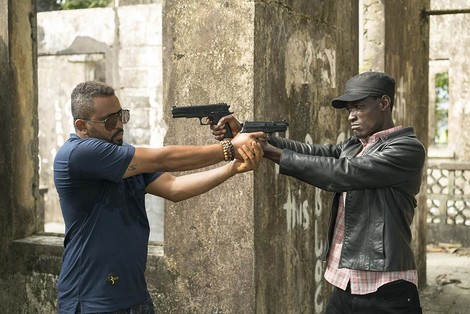Your podcast discovery platform
Curious minds select the most fascinating podcasts from around the world. Discover hand-piqd audio recommendations on your favorite topics.

piqer for: Global finds
Ciku Kimeria is a Kenyan author "Of goats and poisoned oranges" - (https://www.amazon.com/goats-poisoned-oranges-Ciku-Kimeria-ebook/dp/B00HBBWPI6), development consultant, adventurer and travel blogger (www.thekenyanexplorer.com). She writes both fiction and non-fiction focusing on African stories that need telling. She has worked on diverse pieces for various international and local publications including Quartz, Ozy, The East African etc. She has travelled to 45 countries – 16 of them in Africa. 153 countries to go and 63 territories!
"Of goats and poisoned oranges" has been extremely well received in Kenya and beyond. It tells the story of a Kenyan middle aged power couple and their complicated marriage. The novel explores issues of greed, revenge, betrayal and murder. It runs from the 1960s to 2013. It has been described as “Wicked, funny, poignant, wacky, human, a big ball of fun and danger”, “A unique and captivating book”, “Fun and intriguing”, “Impossible to put down once you start reading.”
She recently moved to Dakar, Senegal from Kenya to work on her second novel. She also works at as the Africa Communication Manager at a leading global strategy consulting firm.
She holds a B.S. in Management Science from MIT with minors in Urban Planning and International development studies.
Making Comedies During The Height Of The Ebola Crisis In Liberia
Making comedies during the height of the Ebola crisis in Liberia makes for an interesting story. First, why would anyone take the risk to get in contact with so many people when a highly contagious disease was spreading throughout the country? Secondly, why comedies? Thirdly, how does one avoid contracting Ebola while working with several other people daily? This article explains really well the how and the why of this.
Everything changed when the borders closed. Market stalls closed, and those that remained open, once brimming with pirated movies from West Africa, India, the United States, the Philippines and Hong Kong, were unable to restock their shelves. Entertainment centers all shut at 18:00 daily. With a curfew in place "you couldn't go anywhere," recalls actor Abdul Jah. "Everybody was indoors for months." "We were stuck," says Dwumoh, and "the country had nothing to watch."
The human spirit prevails even during times of crises. People still want to connect, laugh, love, live normal lives even in difficult times.
"But a few of us felt even if Ebola is going to kill us, I'm going to keep making films, and whatever's going to happen is going to happen." Jah also embraced a sense of fatalism. It was required, he says, to stave off what he calls a "secret suicide"; a metaphorical death caused by the constant worry of contracting Ebola. If the disease had not yet claimed their bodies, Jah, Sheriff and their contemporaries decided it would not claim their minds.
The actors and actresses managed to make films during the height of the Ebola crisis without any physical contact. That is already an astonishing feat. They became stars during that time when there was nothing for people to watch other than Liberian films. Unfortunately, as expected, once the crisis was over people went back to watching the usual pirated foreign films that they had been watching before the crisis.
The determination of the crew to keep making films is admirable.
